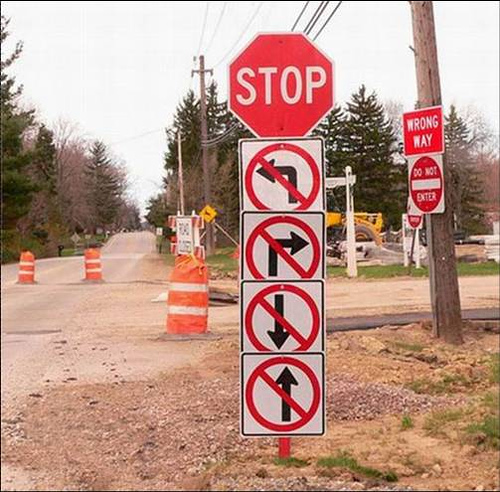Download The Free Guide
Discover practical conversation skills to get unbelievers thinking and make way for the Spirit’s work in their lives.
"*" indicates required fields
 Legalism is an ugly thing to those outside it, but often a beautiful thing to those within it. Legalism is any system whereby the merits of man contribute in any way to his standing with God. For those who have been delivered from the works-righteousness mentality, legalism is bondage, an oppressive system that distorts the grace of God and often turns out neurotic believers who wear themselves out trying to keep up. But to those within legalistic systems, legalism is a refuge from the insecurities of life and the uncertainties of our world. This is one of the reasons why it is so difficult to talk someone out of a legalistic church. There is so much “certainty” and comfort in knowing exactly what one must do to remain in “right with God.” Legalism requires so little faith, because every aspect of life is defined and mandated. In contrast, the concept of grace and Christian liberty is a scary wilderness of uncertainty. Better to stay in the fortress (or prison).
Legalism is an ugly thing to those outside it, but often a beautiful thing to those within it. Legalism is any system whereby the merits of man contribute in any way to his standing with God. For those who have been delivered from the works-righteousness mentality, legalism is bondage, an oppressive system that distorts the grace of God and often turns out neurotic believers who wear themselves out trying to keep up. But to those within legalistic systems, legalism is a refuge from the insecurities of life and the uncertainties of our world. This is one of the reasons why it is so difficult to talk someone out of a legalistic church. There is so much “certainty” and comfort in knowing exactly what one must do to remain in “right with God.” Legalism requires so little faith, because every aspect of life is defined and mandated. In contrast, the concept of grace and Christian liberty is a scary wilderness of uncertainty. Better to stay in the fortress (or prison).
This is not a new phenomenon. At the end of the Middle Ages, the predominant concern of Europeans was the fear of death. After years of bad weather and widespread famine in the 14th century that culminated in the Black Death, life in the 15th century was bleak. As Carter Lindberg notes, “The shortness of life was never far from people’s minds” (The European Reformations, Blackwell, 1996). This situation fueled an obsession with concern for the afterlife. Enter the Catholic Church.
Since hell was not the preferred option, the church and its theologians developed a whole set of practices and exercises to assist people to avoid it. The irony was that in attempting to provide security in an insecure world, the church largely mirrored the new urban and economic developments that exacerbated human insecurity. Suspended between hope and fear, the individual had to achieve his or her goal through a whole system of quid pro quo services that reflected the new ledger mentality of the urban burgher absorbed in the developing profit economy. Taken as a whole, Christendom at the end of the Middle Ages appeared as performance-oriented as the new business enterprises of the day (p. 60).
Pastoral care, while intending to provide security, succeeded only in adding to the insecurity of the individual before God. The reigning paradigm of the Christian life was the phrase facere quod in se est: do what lies within you; do your very best.
In religion as in early capitalism, contracted work merited reward. Individuals were responsible for their own life, society, and world on the basis of and within the limits stipulated by God…This theology, however, enhanced the crisis because it threw people back upon their own resources. That is, no matter how grace-assisted their good works, the burden of proof for those works fell back upon the performers, the more sensitive of whom began asking how they could know if they had done their best (p. 60).
For anyone who has ever lived in a legalistic system, this sounds all too familiar. The fundamentalist variety of today would never deny that salvation is all by grace, but the not so subtle message is that to be “right with God” requires the keeping of the rules. This division between “salvation by grace” and “standing by works” is a theological aberration that has at least two results. The first is that people live in a perpetual state of insecurity regarding their standing with God. This reflects a complete misunderstanding of the nature of justification, whereby we are declared to be in a righteous standing with God, based on the perfect righteousness of Christ. Legalism, in effect, makes the believer’s standing with God dependent on his own works. This creates either self-righteous pride in those who give themselves good marks, or abject despair in those sensitive souls who see their failures more clearly.
The other result of legalism is the emergence of strategies for dealing with the psychoses that arise from this impossible situation. The second half of this essay will recount the emergence of relics and indulgences in the Middle Ages, and the concomitant strategies of legalists today to cope with such a system.
by Jeffrey Mindler, Research Assistant “Therefore take up the whole armor of God, that you may be able to withstand in the evil day, and having done all, to...
by Jeff Mindler, Research Assistant “For the wrath of God is revealed from heaven against all ungodliness and unrighteousness of men, who by their...
When defending the faith against unbelievers, we want to strike at the heart of the unbelieving system of thought. We want to identify the main source of...